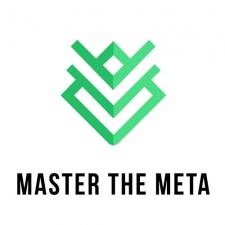Master the Meta is a free newsletter focused on analysing the business strategy of the gaming industry.
MTM and PG.biz have partnered on a weekly column to not only bring you industry-moving news, but also short analyses on each.
To check out this week’s entire meta, visit www.masterthemeta.com.
On April 14th, Chinese Regulators updated its mobile game compliance rules - better known as ISBN - announcing the ‘Game Evaluation Scoring Details,’ which came into effect from April 1st, 2021.
It took years for the Chinese mobile game industry to adapt to the 2016 ISBN environment, and as a result, there’s an expectation that it will take a while for current companies to adjust to these new compliance policies as well.
While the regulation hasn’t slowed the game industry’s growth per se, the industry has shifted dramatically.
Here are some of the changes:
- Re-skinned games from other countries, once a staple and a major issue, are no longer compliant
- Studios are incentivised to create higher quality games
- Chinese companies are forced to focus on the global market
Unfortunately, the ISBN has a high fixed cost, which means that both Chinese and foreign indie studios generally have a much higher hurdle in their go-to-market. It also means that China’s large publishers like Tencent and NetEase have much greater control over which foreign games to publish.
On average, foreign games ISBN will take 18 to 24 months and only 150 to 200 foreign games will receive ISBN every year.Owen Soh
Does it even make sense for indie studios to enter China? Perhaps as a last resort option, but truthfully nobody really knows yet.
How does the new ‘Game Evaluation Scoring Details’ affect the market? On average, foreign games ISBN will take 18 to 24 months and only 150 to 200 foreign games will receive ISBN every year. Each publisher will take this into account during game evaluation.
Here are some of the details:
- There will be two or more ‘experts’ scoring each ISBN application.
- Scoring works under five categories: value system, originality, quality, cultural and development progress. There are even more sub-categories under the umbrella category.
- The score is given on a basis of zero to five. Overall scores of three or over will proceed, while scores of four or more will be expedited. Scores of two and below will be rejected.
- The application is rejected if any category receives a score of zero. Here is the current list of the latest ISBNs for foreign mobile games.
Some industry observers say that the new scoring system demonstrates regulators’ sophistication and nuance, with a focus on quality and content.
However, some analysts have expressed concerns with regard to who the so-called “experts” are, whether they favour big publishers and if the scoring will adversely limit creativity in indie games.
We’ve also previously discussed how upstarts such as Lilith Games and ByteDance are challenging larger publishers.
I’m not sure what implications these regulations will have on emerging competition either, but I’m keen to track it.
Such discussions are still ongoing among China netizens. The games industry is now waiting for more ‘empirical evidence’ - namely the next batch of successful ISBNs as well as rejections to provide guidance.
For myself, I tend to look at the silver lining - “four points and above means expedited application.” Perhaps this means that high-quality foreign games now have a path to quicker ISBNs. Perhaps not.
(Written by China market entry consultant Owen Soh)
To check out this week’s entire meta, visit www.masterthemeta.com.
Master the Meta is a newsletter focused on analysing the business strategy of the gaming industry. It is run by Aaron Bush and Abhimanyu Kumar. To receive future editions in your inbox sign up here:

















